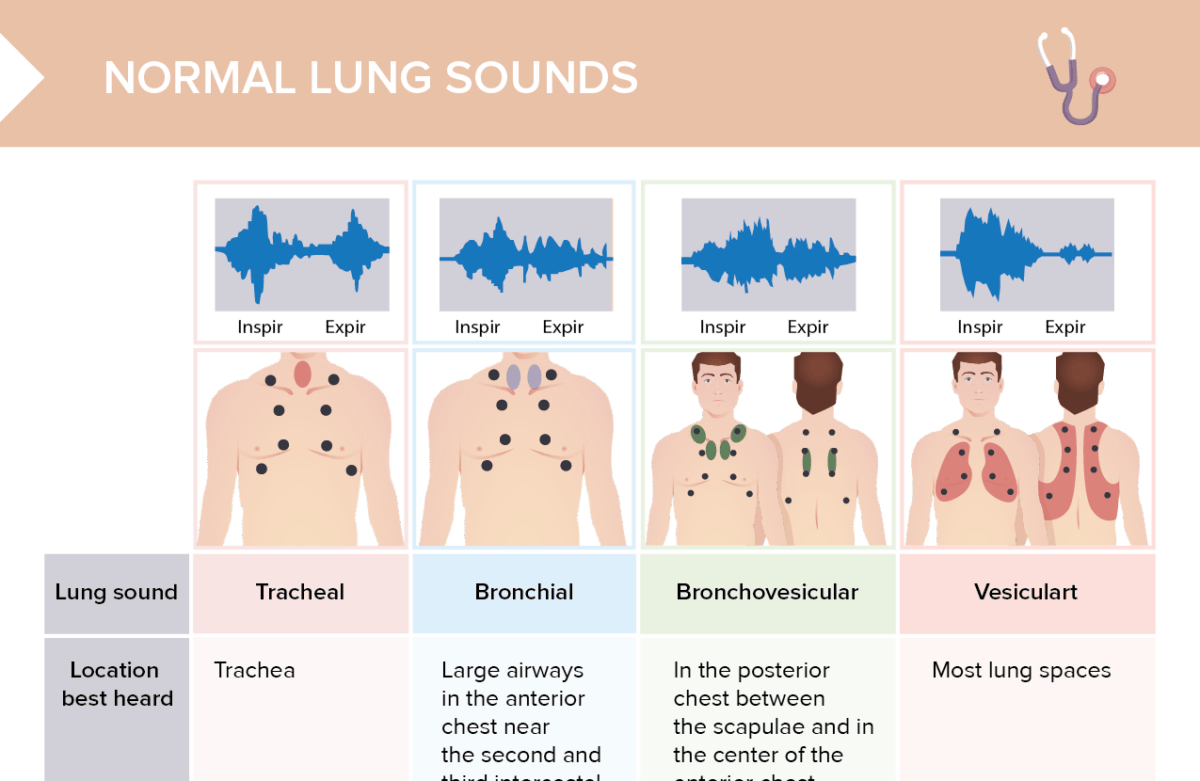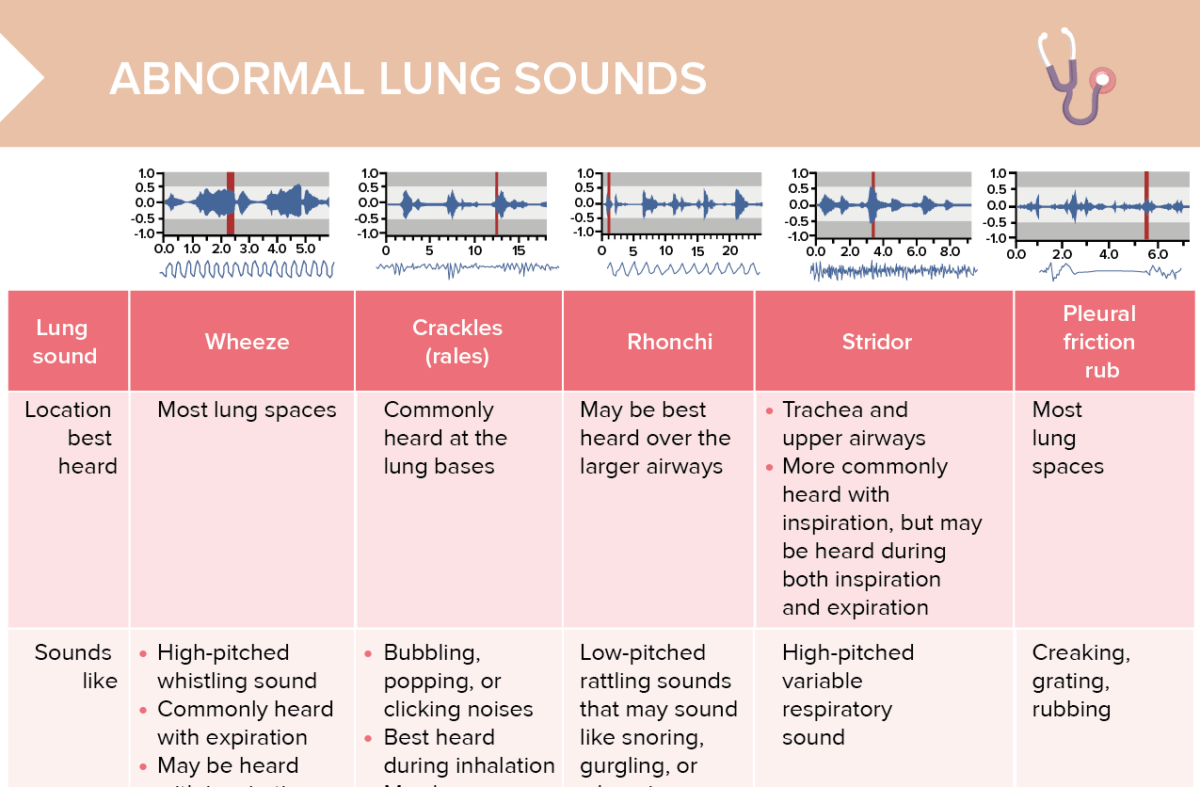How to auscultate lungs
Auscultating, or listening to, lung sounds is a critical part of a respiratory assessment. Here are the steps for lung auscultation:
- Ask the client to sit upright as this allows for optimal lung expansion.
- Use a stethoscope with a diaphragm (better for listening to lung sounds which are relatively high-pitched).
- Start at the top (near the collarbone) and work downward to the bottom (base) of the lungs. Listen to both the front (anterior) and back (posterior) of the chest. Make sure to auscultate corresponding areas on both sides of the chest for comparison.
- Place the stethoscope directly on the client skin, not over clothing. Ask the client to breathe in and out deeply through the mouth.
- When you move the stethoscope, make sure you listen to at least one full breath cycle at each location.
- Normal lung sounds include vesicular, bronchial, and bronchovesicular sounds. Note any abnormal (adventitious) sounds such as wheezes, crackles (rales), rhonchi, or stridor.
- Document your findings.
Related videos
What are the different types of adventitious lung sounds, and what do they sound like?
Abnormal lung sounds (adventitious lung sounds) are unusual sounds heard over the lungs during auscultation with a stethoscope. The different types of abnormal lung sounds include:
- Wheeze: high-pitched whistling
- Crackles (rales): bubbling, popping, clicking noises
- Rhonchi: low-pitched rattling sounds
- Stridor: high-pitched variable sound
- Pleural friction rub: creaking, grating, rubbing
Where to listen to lung sounds
- Wheeze: most lung spaces
- Crackles (rales): lung bases
- Rhonchi: over larger airways
- Stridor: trachea and upper airways, more commonly during inspiration
- Pleural friction rub: most lung spaces
What does wheezing sound like?
Wheezing is a high-pitched whistling sound that is commonly heard with expiration and may be heard with inspiration or throughout the cycle depending on the severity of inflammation and constriction.
What causes wheezing?
Wheezing is caused by vibrations of constricted airway walls induced by a diminished airflow.
What do crackles sound like?
Crackles are described as bubbling, popping, or clicking noises that are best heard during inhalation and may be moist, dry, fine, or coarse.
What causes crackles?
Crackles are caused by fluid in the smaller areas of the lungs such as in the alveoli.
What do rhonchi sound like?
Rhonchi are low-pitched rattling sounds that may sound like snoring, gurgling, or wheezing.
What causes rhonchi?
Rhonchi are caused by blockage in the large airways due to fluid, mucus, or other secretions in the lungs.
What does stridor sound like?
Stridor is a high-pitched, wheezing sound that’s usually heard on inspiration. It may be louder over the neck and can signify a medical emergency.
What causes stridor?
Stridor indicates a narrowed or obstructed upper airway, which can significantly impede airflow.
Note: Any client presenting with stridor requires immediate medical attention to prevent a complete, potentially life-threatening airway obstruction. Potential causes of stridor include anaphylaxis, foreign body aspiration, laryngeal or tracheal stenosis, or epiglottitis.
What does pleural friction rub sound like?
Pleural friction rub is characterized by creaking, grating, or rubbing sounds that can be heard during both inspiration and expiration.
What causes pleural friction rub?
Pleural friction rub is caused by inflammation that roughens the surfaces of the visceral and parietal pleura.

